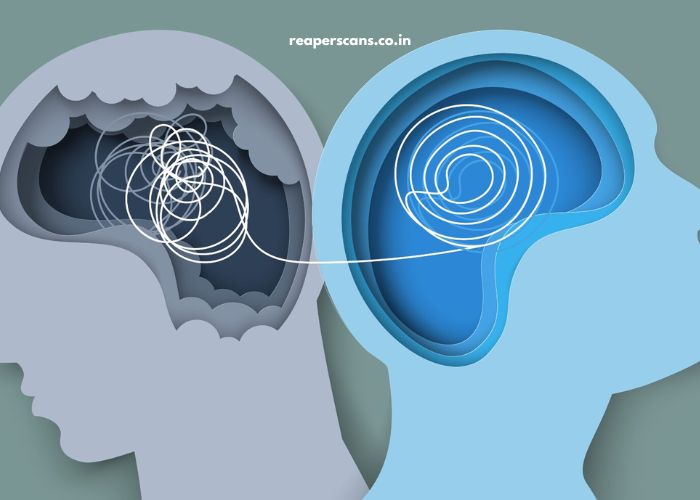Mental health is increasingly recognized as an essential aspect of overall wellbeing, yet the fast-paced and often stressful nature of modern life can make it challenging to prioritize mental health. As we look to the future, particularly in 2025, mental health concerns are more significant than ever, and adopting effective strategies for mental wellness is critical. This article will explore practical and scientifically supported strategies that can help improve mental health in 2025, ensuring a balanced and fulfilling life.
Understanding the Importance of Mental Health in 2025
The global landscape of mental health has evolved significantly in recent years. The rise of social media, economic pressures, and global challenges such as the COVID-19 pandemic have affected people’s mental wellbeing. According to the World Health Organization (WHO), one in four people will experience mental health issues at some point in their lives. The pandemic further exacerbated mental health problems, leading to increased levels of anxiety, depression, and stress.
As we move into 2025, the importance of mental health cannot be overstated. Good mental health contributes to improved productivity, better physical health, and a higher quality of life. It enhances our ability to cope with stress, make decisions, and foster healthy relationships. Mental health is not just the absence of mental illness; it is a state of psychological and emotional well-being where individuals can realize their potential and cope effectively with life’s challenges.
The Rising Need for Mental Health Solutions in 2025
The Digital Age: A Double-Edged Sword
While technology has provided various benefits, such as easier access to information and improved communication, it has also introduced new challenges for mental health. The rise of social media platforms, constant connectivity, and digital distractions can lead to feelings of isolation, anxiety, and depression. According to a study published by the American Psychological Association, the excessive use of social media is linked to higher levels of loneliness and mental distress.
In 2025, it’s likely that digital health technologies, such as teletherapy and mental health apps, will play an even more significant role in addressing these challenges. However, it’s essential for individuals to strike a balance between the positive aspects of technology and the potential drawbacks it poses for mental health.
Economic Pressures and Mental Health
The global economy in 2025 will likely continue to evolve, with new industries emerging and traditional job markets shifting. Economic uncertainty, job insecurity, and the rising cost of living can all contribute to mental health issues. Financial stress has been closely linked to conditions like anxiety and depression. Strategies to reduce financial stress and improve mental resilience will become critical as economic pressures continue to grow.
Social and Cultural Shifts
In 2025, societal norms and expectations surrounding mental health are shifting. The stigma around seeking help for mental health issues is gradually diminishing, but challenges remain. Cultural differences, gender roles, and social expectations can impact how individuals perceive their mental health and whether they feel comfortable reaching out for support. Creating inclusive, supportive environments for mental health is a key strategy moving forward.
Strategies for Improving Mental Health in 2025
As we navigate the challenges of the modern world, implementing effective mental health strategies is crucial. Below are some key approaches that can promote mental wellbeing in 2025.
1. Building Emotional Resilience
Emotional resilience refers to the ability to adapt to stressful situations, bounce back from adversity, and maintain emotional stability. Building emotional resilience is one of the most effective ways to safeguard mental health.
Developing Coping Skills
Resilience can be built by developing healthy coping mechanisms for stress, such as mindfulness, meditation, and deep breathing exercises. These techniques help individuals stay grounded in challenging situations, reduce anxiety, and maintain clarity of thought.
Practicing Self-Compassion
In 2025, it will be more important than ever to embrace self-compassion. This involves treating oneself with kindness during difficult times, avoiding self-criticism, and recognizing that setbacks are a natural part of life. Self-compassion has been shown to reduce the impact of stress and increase emotional wellbeing.
2. The Power of Physical Health for Mental Wellbeing
Physical and mental health are closely intertwined. Regular physical activity, a balanced diet, and adequate sleep are essential for maintaining good mental health. In 2025, there will be more emphasis on the mind-body connection, and people will be encouraged to engage in holistic health practices that support both physical and mental wellbeing.
Regular Exercise and Physical Activity
Exercise is one of the most effective ways to improve mental health. Physical activity triggers the release of endorphins, which are natural mood boosters. Exercise can also reduce stress, improve sleep, and enhance cognitive function. In 2025, wearable technology and fitness trackers will likely continue to evolve, helping individuals monitor their physical activity and maintain healthy habits.
Nutritional Support for Mental Health
Nutrition plays a significant role in mental health. Certain nutrients, such as omega-3 fatty acids, B vitamins, and antioxidants, are linked to improved mood and cognitive function. A diet rich in fruits, vegetables, whole grains, and lean proteins can support overall mental wellbeing.
Quality Sleep for Mental Clarity
Adequate sleep is essential for maintaining good mental health. Chronic sleep deprivation has been linked to various mental health issues, including anxiety, depression, and difficulty concentrating. In 2025, technology will likely offer more advanced solutions to help individuals improve their sleep quality, such as sleep tracking devices and apps that provide personalized recommendations.
3. Social Support and Connection
Building and maintaining strong social connections is vital for mental health. Relationships with family, friends, and communities provide emotional support and a sense of belonging. In an increasingly digital world, fostering genuine, in-person connections will remain essential for mental wellness.
Building Meaningful Relationships
Quality relationships contribute to a sense of fulfillment and happiness. Engaging in social activities, volunteering, or participating in community events can help foster meaningful connections. In 2025, social platforms may evolve to focus more on fostering authentic, supportive relationships, rather than just virtual interactions.
Seeking Professional Support
Mental health professionals, such as therapists and counselors, will continue to play a crucial role in providing support for individuals facing mental health challenges. Teletherapy and digital counseling services are likely to become even more accessible in 2025, making mental health support available to a wider audience.
4. Embracing Mindfulness and Meditation
Mindfulness and meditation are powerful tools for improving mental health. These practices involve focusing on the present moment, cultivating self-awareness, and learning to manage thoughts and emotions more effectively.
Mindfulness Techniques
Mindfulness practices such as deep breathing, body scanning, and mindful walking help individuals stay present and reduce stress. In 2025, there will likely be an increase in the use of virtual reality (VR) and augmented reality (AR) technologies to enhance mindfulness training.
Meditation for Mental Clarity
Meditation has long been recognized as an effective way to promote mental clarity and reduce stress. Guided meditation apps and online platforms will continue to grow in popularity, offering personalized meditation experiences tailored to an individual’s needs.
5. Digital Detox: Managing Technology Use
As technology becomes increasingly integrated into daily life, it’s essential to manage screen time and take regular breaks from digital devices. A digital detox can help reduce the negative impact of technology on mental health, such as anxiety, stress, and social comparison.
Setting Boundaries with Technology
In 2025, people will increasingly recognize the importance of setting boundaries with technology. Limiting screen time, especially before bed, can improve sleep quality and reduce stress. Additionally, reducing the consumption of negative or triggering content on social media can help protect mental health.
Disconnecting to Reconnect
Taking time away from screens and spending time outdoors, engaging in hobbies, or connecting with loved ones in person can help recharge mental energy and improve overall wellbeing.
6. Leveraging Technology for Mental Health Support
While technology can have negative effects on mental health, it also offers tremendous opportunities to support mental wellness. In 2025, digital tools will play an increasingly important role in mental health management.
Mental Health Apps and Wearables
Mental health apps that track mood, stress levels, and sleep patterns will continue to evolve. These apps provide users with insights into their mental health, offer coping strategies, and even connect them with professional support. Wearable devices, such as smartwatches and fitness trackers, can also monitor stress levels and provide real-time feedback to help individuals manage their mental health proactively.
Teletherapy and Online Support Communities
Teletherapy has already gained popularity, and in 2025, it will be even more accessible and commonplace. Online counseling services will allow individuals to connect with licensed professionals from the comfort of their homes. Additionally, online communities and support groups will offer spaces for people to share experiences and find solidarity.
7. Fostering a Growth Mindset
A growth mindset involves the belief that abilities and intelligence can be developed through effort and learning. This mindset is key to overcoming challenges and maintaining mental wellbeing in the face of adversity.
Embracing Challenges as Opportunities
In 2025, cultivating a growth mindset will help individuals approach life’s difficulties with a sense of optimism and resilience. Embracing failure as a learning opportunity, rather than a setback, can enhance mental wellbeing and promote long-term success.
Conclusion
As we move into 2025, mental health will continue to be a critical area of focus for individuals, communities, and organizations worldwide. Prioritizing mental wellbeing through strategies such as building emotional resilience, maintaining physical health, fostering social connections, and embracing mindfulness can help individuals lead healthier, more fulfilling lives. By leveraging both traditional methods and emerging technologies, we can create a future where mental health is valued, supported, and nurtured.
By incorporating these strategies into daily life, individuals can ensure that their mental health remains a priority in 2025 and beyond, leading to better overall wellbeing in an increasingly complex and fast-paced world.





